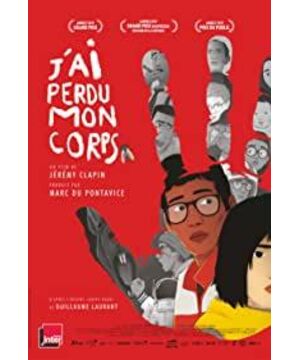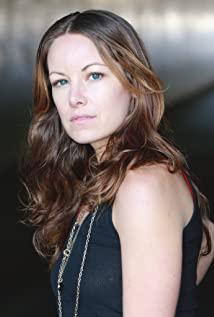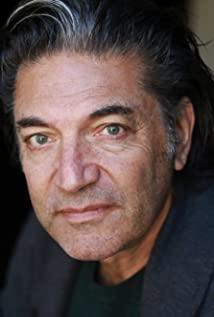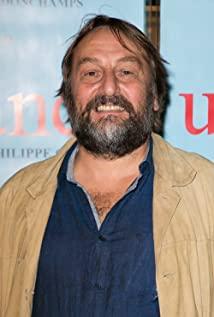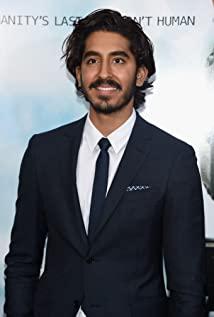The male protagonist is very annoying. It is the indirect and direct influence of his immature behavior that caused the accidents of his parents and himself. However, this is the core of the whole film. Everyone has their own interpretation. It is very simple to me:
All lost children have their own poems
Every sentence is destined
You can't read it, it's okay
That's not a verse for you
I understand, just fine
But
If you also understand, that would be great.
————
I know you, never grew up.
You can’t ask a child to see all the pros and cons from God’s perspective like a 30-year-old adult. Do you still remember your childhood mood?
He just wanted to be a wind-like man. How could he know that his family was not far away? When he was depressed, he was suddenly caught by a fly and he would break his hand. When you are rather confused about the pros and cons, he is just obeying the self to make everything happen.
Of course he will regret it, but will it be different even if he starts again? This is the so-called fate in his eyes.
All his behaviors are very childish. What's difficult (ming), ability (wan), but (bu) expensive (ling), is that the growth of age has not changed his self, emotional and airy, sensitive and delicate, and romantic in his heart. There is a vast sky and the sky, I guess the director and screenwriter should have projected a lot of personal personality in the role.
For rational people, this is an annoying guy, and for emotional comrades, I am afraid that I can find a little bit of self from the mood and behavior of the male protagonist. The ones you like will resonate like looking in a mirror, and the ones you hate are also very annoying, full of naive and irrational judgments that you don’t love.
He will be extremely overjoyed by all kinds of unfulfilled promises (various promises from his parents, all kinds of self-righteous dedication and expectations for the hostess), and also extremely frustrated by the unsatisfactory life of his life.
But he is really innocent. The heroine opened his long and gloomy life with an occasional trace of kindness, and wasted in the quagmire of the unsatisfactory first half of his life. Could it be that fate opened another window for him? He frantically wanted to catch, the light in the darkness, the life-saving straw, a natural fate encounter.
I just want you, I don't need you to give anything, don't make any promises, as long as I can stop by your side and answer I'm so happy, I like you and I am willing to pay for you silently, even if I get nothing. It's jealous to see a stranger.
The hero even his lover is so naive and simple, so small and sad, as long as you live in your own mind are beautiful, that's fine.
He lives in his own world, thinking that the world will develop according to the plot he thinks. It seems that everything is secretly destined, and the heroine has become his everything, his sun. But when the truth was revealed, he didn't wait for the end he thought, and the calm hostess yelled and left, shattering all his dreams.
Is this also fate?
Can't you escape?
Therefore, the fly that was never caught grabbed his heart at this "appropriate" moment.
The fly finally flew away, and he escaped from his own gloom, perhaps this is the true face of fate in "I".
I lost my body, and the heroine, what a pun.
But the director and screenwriter are under the influence of the mainstream audience and the so-called three views of society. Will such an outcome be allowed to happen? What hope is there for a life in the gloom?
So the plot began to break free from the so-called fate, resurrected with severed hands, and embarked on a bizarre adventure that does not succumb to fate. The goal is clear, the wits and courage are fighting, and the organs are exhausted. This is a drama that touches everyone, but it is only for adults. Jue Jue, this hand, as another clone of the male protagonist, completed his self-conscious growth for him. To put it bluntly, it is called growing up. This is no longer the emotional child who recklessly acts solely on his own preferences.
The two-line narrative seems like a mirror, but it is completely different.
So he found him, but never returned to the past.
At the end of the plot, we need a happy ending, the male lead jumps up, as if he has escaped his own destiny. Although the body is separated, he completes the unity and sublimation of the self and the clone at the ideological level.
What is left for us is an open ending. He may be dead or alive. Is there any story between him and the heroine?
This ending is the goodwill of the director and screenwriter,
Wait, is this really kind?
Or is this the cruel reality of the director's cunning? What is missing is the body and the self of the male protagonist. The one that has been telling the story to us until the end is the hand. Even if the heroine finally understands the hero, so what?
We did break away from the past selves, but did we really leave our destiny and enter another corner? Just like the question asked by the heroine, what happens when you jump over?
You do grow up, your new self overwrites all the pains of the past, but leaves the child's self in the snow forever. When we grow up with the price of love, will someone really open up the self that you abandoned? Even if you use fast forward to see the past and present you clearly, will life be fundamentally different? And where can I look for the eliminated one? I have lost my body, have I also lost my beauty?
————
All lost children have their own poems
No, all lost children have had their own poems
Do you remember that verse?
Still walking forward with one hand, alone.
View more about I Lost My Body reviews


